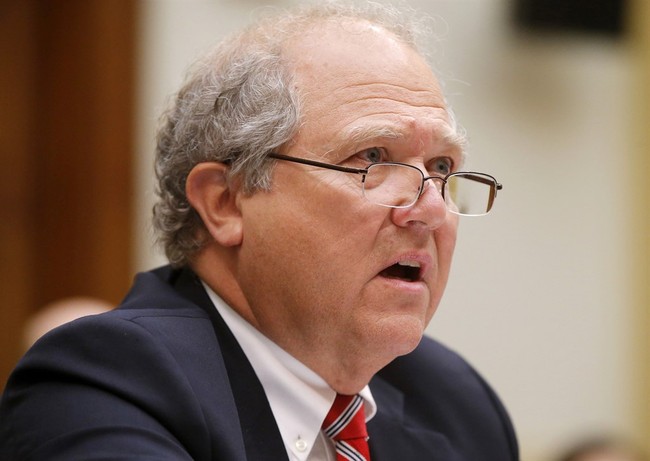
For 12 years, John Sopko has been leading a lonely effort to bring accountability to the Afghan reconstruction effort as Special Inspector General for Afghan Reconstruction.
Unfortunately, “accountability” and “government effort” are like oil and water–they never mix.
As his job winds down, he is putting together his final report–the last of literally hundreds released over the years. Throughout that he time his reports detailed failures and even lies told by high-level officials, NGOs, and even generals to Congress and the American people. As important as those reports are, it must be frustrating to have been a Cassandra whose fate it was to foretell the truth and be ignored.
This passage by Special Inspector General John Sopko applies to far more than the U.S. experience in Afghanistanhttps://t.co/xfij9oRFzx pic.twitter.com/miPHvfa5bV
— Nick Schwellenbach (@schwellenbach) January 2, 2025
In a much-muted but still important opinion piece in The New York Times, Sopko drops some truth bombs, which, I hope, do not land with a thud, unexploded. As he makes clear, his criticisms of the failures we have seen in Afghanistan are not unique to that effort, but emblematic of how business is done in government.
But a perverse incentive drove our system. To win promotions and bigger salaries, military and civilian leaders felt they had to sell their tours of duty, deployments, programs and projects as successes — even when they were not. Leaders tended to report and highlight favorable information while obscuring that which pointed to failure. After all, failures do not lead to an ambassadorship or an elevation to general.
They also aren’t good business for the contractors on which the U.S. mission relied to manage and support programs and projects. For contractors, claiming success, whether real or imaginary, was vital to obtaining future business. So spending became the measure of success. (The same, of course, is true in Washington, where unspent allocations are tantamount to failure, leading to budget cuts.) Accountability for how money was spent was poor. One general told us that he faced a challenge: How to spend the remaining $1 billion from his annual budget in just over a month? Returning the money was not an option. Another official we spoke to said he refused to cancel a multimillion-dollar building project that field commanders did not want, because the funding had to be spent. The building was never used.
As one former U.S. military adviser told my office, the entire system became a self-licking ice cream cone: More money was always being spent to justify previous spending. Old staff departed, new staff arrived with “better” ideas, and new iterations of the same old solutions were repeated, for years.
You see the same dynamic all the time in government spending–politicians and bureaucrats tout their funding of transportation projects, proving they are doing something. But at the same time, they point out the need for even more funding, because the problems persist. If only if we had MORE money, success would be just around the corner.
Scenes of panic and chaos played out at the airport in Kabul as crowds of people desperate to escape Afghanistan rushed onto the tarmac.
Some clung to the sides of planes, even as one taxied down the runway, in a bid to flee the Taliban.https://t.co/pAgoGW7tos pic.twitter.com/4YGQd2iEzk
— The New York Times (@nytimes) August 16, 2021
Biden is doing the same going out the door–look at how much I have spent! Pete Buttigieg articulated this perfectly:
I’m confident that a century from now, future Americans will look back on the work we’ve done—much as we look at the Hoover Dam—and see how the Biden-Harris Administration’s “Big Deal” for infrastructure made big things possible. pic.twitter.com/SQEjzm8Mi6
— Secretary Pete Buttigieg (@SecretaryPete) December 31, 2024
The Hoover Dam, except no dam, but a nice bonfire fueled with cash. Same thing.
In government, nothing succeeds like failure–the bigger the problem, the more urgent the need, the more money will flow out of the spigots. You spin your previous efforts as “successful” but underfunded and anything can be justified–especially since nobody wants to be tainted with the stench of failure.
Official statements across successive U.S. presidential administrations were, in my view, often simply untrue. Just six days before the Afghan government collapsed, the Pentagon press secretary declared that Afghanistan had more than 300,000 soldiers and police officers, even though the special inspector general’s office had been warning for years that no one really knew how many soldiers and policemen were available, nor what their operational capabilities were. As early as 2015, I informed Congress that corrupt Afghan officials were listing “ghost” soldiers and police officers on rosters, and pocketing the salaries.
Important information for measuring the success of initiatives was — at times deliberately — hidden from Congress and the American public, including USAID-funded assessments that concluded Afghan ministries were incapable of managing direct U.S. financial assistance. Despite vigorous efforts by the U.S. bureaucracy to stop us, my office made such material public.
Special interests are a big part of the problem. President Dwight Eisenhower once warned of the growing influence of a “military-industrial complex.” Today, there are multiple complexes: development and humanitarian assistance, anti-corruption and transparency, protection for women and marginalized people, and many others. These are all good and noble causes, to be sure. But when it came to Afghanistan, organizations under these umbrellas, whether because of altruism or more selfish motivations, contributed to the overly optimistic assessments of the situation to keep the funds flowing. Self-serving delusion was America’s most formidable foe.
In other words, all these people lied to keep the money flowing. And for anybody naive enough to think that NGOs–nonprofits–aren’t just as motivated by the almighty dollar and willing to lie to get it, look at Afghanistan. These organizations are no less liable to corruption than any big multinational corporation, or POTUS for that matter.
Sopko’s bottom line? These failures were not special to Afghanistan but inherent in how the government does things. The problem wasn’t just that Afghanistan was too tough a nut to crack–of course it was–but that everybody involved in cracking that nut had an incentive to keep the grift going.
In Afghanistan, the office of the special inspector general was often the only government agency reliably reporting on the situation on the ground, and we faced stiff opposition from officials in the Departments of Defense and State, USAID and the organizations that supported their programs. We were able to do our work only because Congress granted us the freedom to operate independently. Inspectors general for the military, State Department and USAID, however, do not enjoy such autonomy. If we are going to fix a broken system that puts bureaucrats and special interests ahead of taxpayers, the first step is to make all federal inspectors general as fully independent as my office has been.
Ultimately, however, if we do not address the incentives in our government that impede truth-telling, we will keep pursuing projects both at home and overseas that do not work, rewarding those who rationalize failure while reporting success, and burning untold billions of dollars. American taxpayers deserve better.
You should read his entire piece–I haven’t even touched on his findings regarding Afghanistan itself. He lays out why the failure was inevitable and how it was foreseen.
But what he brings to the table that is unique is his inside view of how government processes made that failure inevitable, even if Afghanistan could have been reformed.










